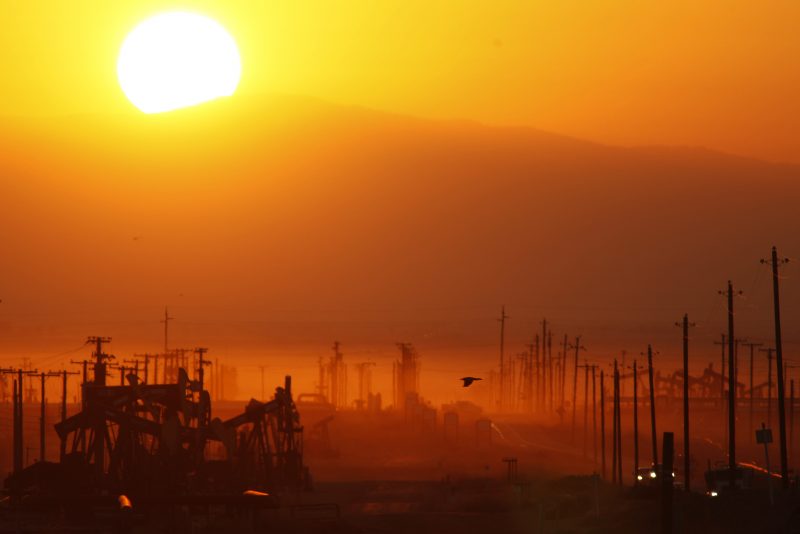US set to become net exporter of oil: IEA
Shale oil has revolutionised the US oil sector and increasingly the global market (DAVID MCNEW)
Paris (AFP) – Crude production is set to continue expanding in the United States thanks to shale oil, with the country becoming a net exporter from 2021, a development which should reinforce global energy security, the IEA said Monday.
“The second wave of the US shale revolution is coming,” Fatih Birol, the executive director of the International Energy Agency, said in a statement.
New technology that allows for extracting oil and gas from shale rock formations has led to a boom in oil production in the United States in recent years. With low production costs, that boom is set to continue.
The IEA forecasts the United States will account for two-thirds of the increase in global oil production and some three-quarters of the expansion of liquefied natural gas (LNG) over the next five years.
This will help the United States surpass Russia and nip at the heels of Saudi Arabia as the world’s top exporter.
“This will shake up international oil and gas trade flows, with profound implications for the geopolitics of energy,” said Birol.
Rising US shale production was one of the main drivers in the collapse in oil prices in 2014, from which the oil industry is just recovering.
Production outside the OPEC oil cartel is set to continue rising, according to the IEA, which sees it climbing by 6.1 million barrels per day (mbd) to 68.7 mbd in 2024. In addition to the United States, both Brazil and Norway are expected to increase output.
Meanwhile, OPEC output is expected to dip in 2019 and 2020, before resuming modest growth to 32 mbd in 2024.
Overall, global output is expected to rise by 5.9 mbd by 2024, with output in Iran expected to drop due to US sanctions and Venezuela thanks to its deep economic crisis.
The IEA also sees growth in demand for oil to ease, in particular due to slowing expansion in China. Nevertheless, it sees demand increasing by an annual average of 1.2 mbd to 2024.
China and India will still account for nearly half of the global increase in oil demand, which is expected to rise by 7.1 mbd to 106.4 mbd in 2024.
Moreover, the IEA continues to see no peak in oil demand.
The petrochemicals sector and jet fuel will be the key drivers of growth, “more than offsetting a slowdown in gasoline due to efficiency gains and electric cars”, said the IEA.
Disclaimer: This story is published from a syndicated feed. Siliconeer does not assume any liability for the above story. Validity of the above story is for 7 Days from original date of publishing. Content copyright AFP.


